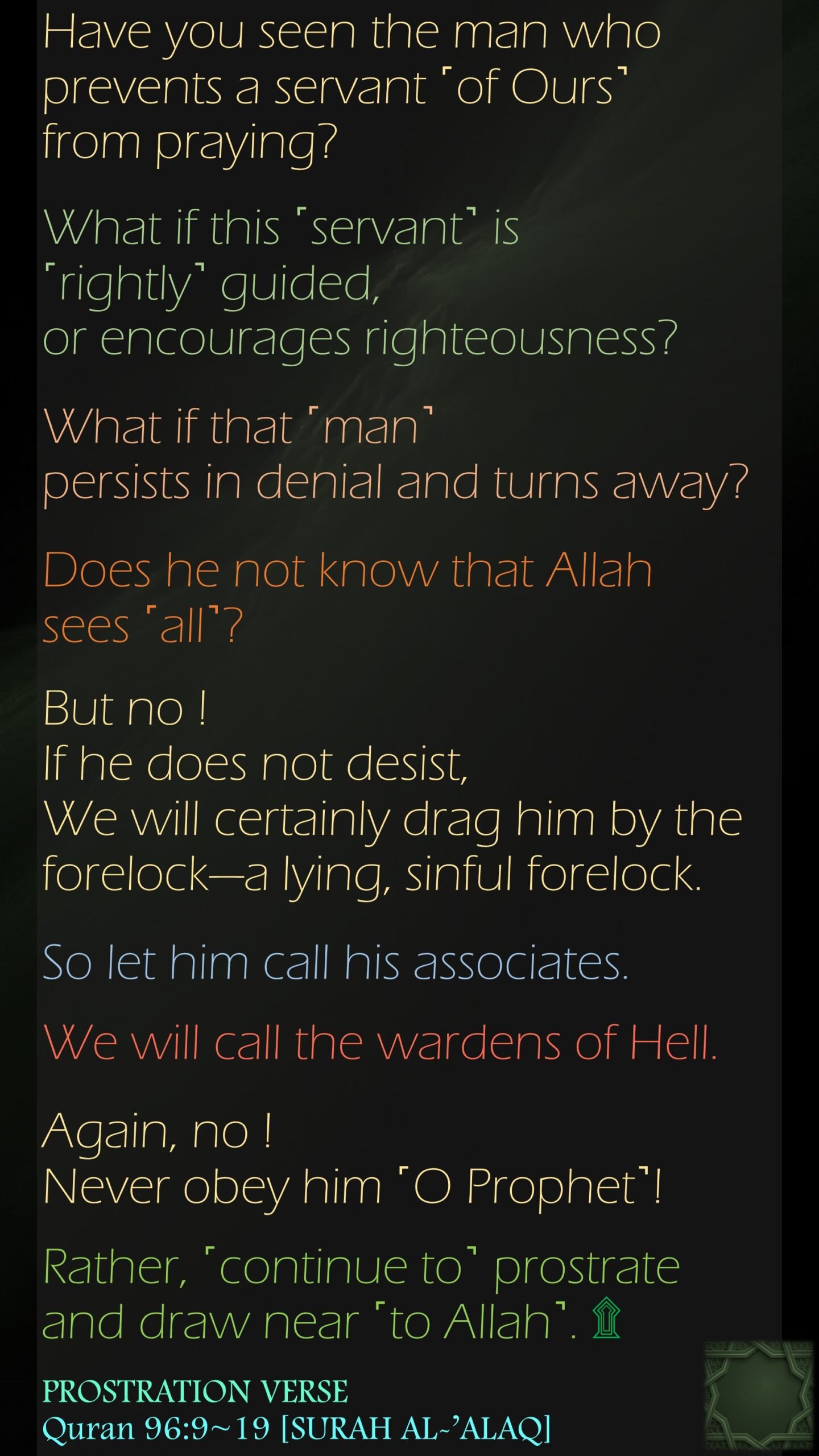Skip to Content
Tag Archives: encourage
- Home -
- Posts tagged "encourage"
27
Nov, 2023
Islam, Quran
all, Allah, associates, ayat, daily, day, dedidt, denial.see, encourage, forelock, guide, inspirations, islam, islamic, Muhammad, persist, pray, prostrate, prostration, prostration verse, quran, righetousness, Sajda, Surah
5
Jan, 2023
Islam, Quran
ayat, believer, bow, Chapter 9, daily, devote, down, encourage, evil, fast, forbid, good, inspirations, islam, islamic, limits, Lord, news, observe, praise, prostrate, quran, repent, repentence, set, Surah, tauba, taubah, Verse 112, worship
19
Nov, 2022
Islam, Quran
113, 114, 115, alike, Allah, ayat, book, chapter 3, daily, denied, encourage, evil, forbid, good, inspirations, islam, islamic, judgement, last day, mindful, never, not, people, perfect, prostrate, quran, race, recite, revelations, reward, righteous, Surah, true, upright, verses
18
Nov, 2022
Islam, Quran
Allah, ayat, believe, best, book, Community, daily, encourage, evil, faithful, forbid, good, inspirations, islam, islamic, quran, rebellious, Surah
8
Jul, 2022
Islam, Quran
All Wise, alm, Almighty, ayat, Chapter 9, daily, encourage, Eternity, evil, forbid, forever, Gardens, Gardens of Eternity, good, Guardian, home, inspirations, islam, islamic, Men, messenger, Obey, pay, PBUH, promise, quran, rivers, SAWW, splendid, Surah, tax, triumph, true, ultimate, verse 71, verse 72, women





